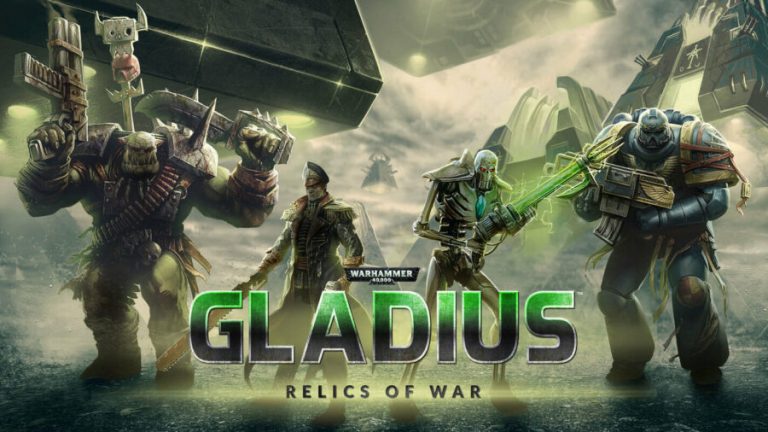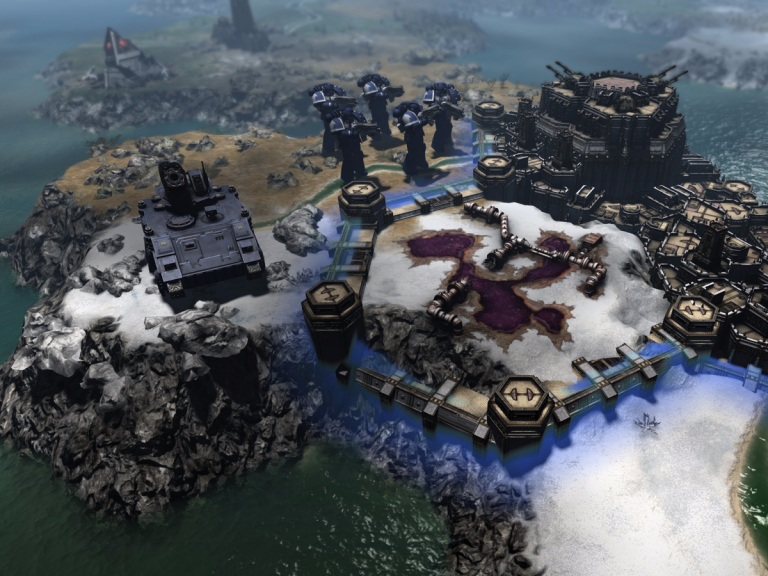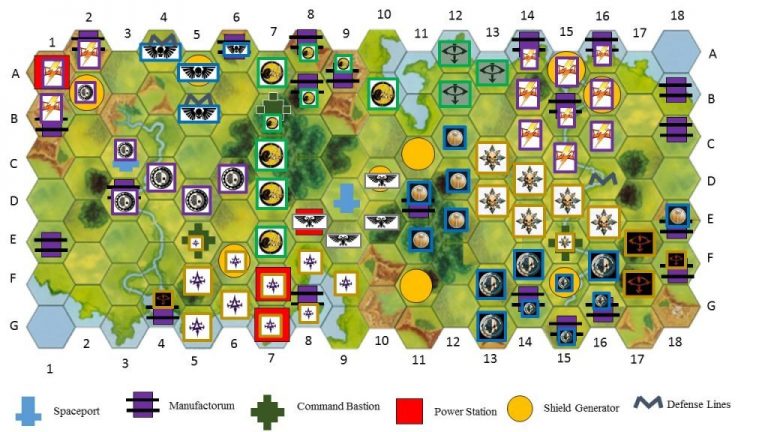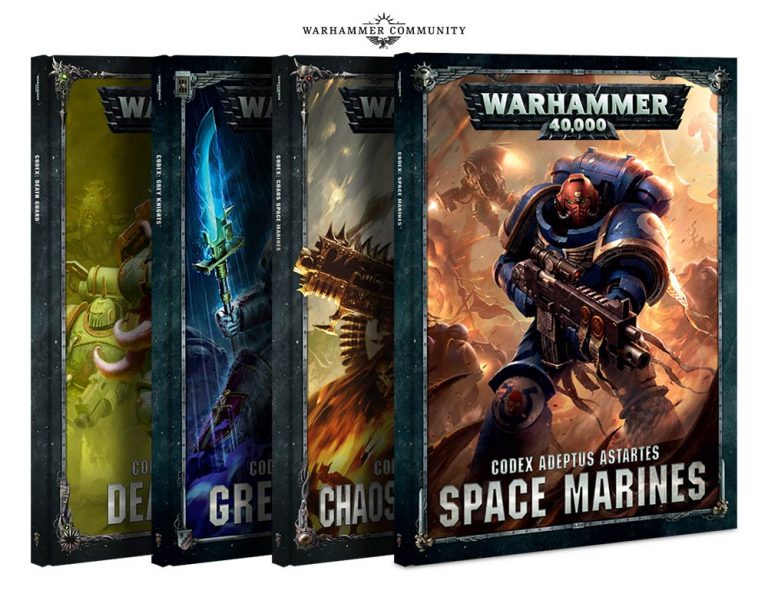From Tabletop To Digital: The Evolution Of Warhammer 40k Games
From tabletop battles to immersive digital experiences, the world of Warhammer 40k games has undergone a captivating evolution. This beloved franchise, set in a dystopian future where humanity battles against alien forces, has not only captured the hearts of tabletop gamers but has also made a significant impact in the digital realm. In this article, we will explore the fascinating journey of Warhammer 40k games, tracing their transformation from physical miniatures to virtual battlegrounds.
Over the years, Warhammer 40k has become synonymous with strategic gameplay, detailed miniatures, and an expansive lore. It all started on the tabletop, where players would gather around with their armies and engage in epic battles using carefully crafted figurines. The tactile nature of the game, with its intricately painted models and customizable armies, created a sense of immersion and camaraderie among players. But as technology advanced and the digital landscape expanded, the Warhammer 40k universe found its way into the realm of video games, bringing its rich lore and intense battles to a wider audience.
Nowadays, Warhammer 40k games span across various genres and platforms, offering players a multitude of ways to experience the grim darkness of the 41st millennium. From real-time strategy games that put players in command of massive armies to immersive first-person shooters that plunge them into the heart of the warzone, the digital adaptations of Warhammer 40k have pushed the boundaries of what is possible in gaming. Whether you’re a veteran tabletop player or a newcomer to the franchise, these digital iterations offer a thrilling and accessible way to explore the intricate world of Warhammer 40k. So grab your bolter, don your power armor, and get ready to dive into the exciting evolution of Warhammer 40k games, where the battle for humanity’s survival knows no bounds.
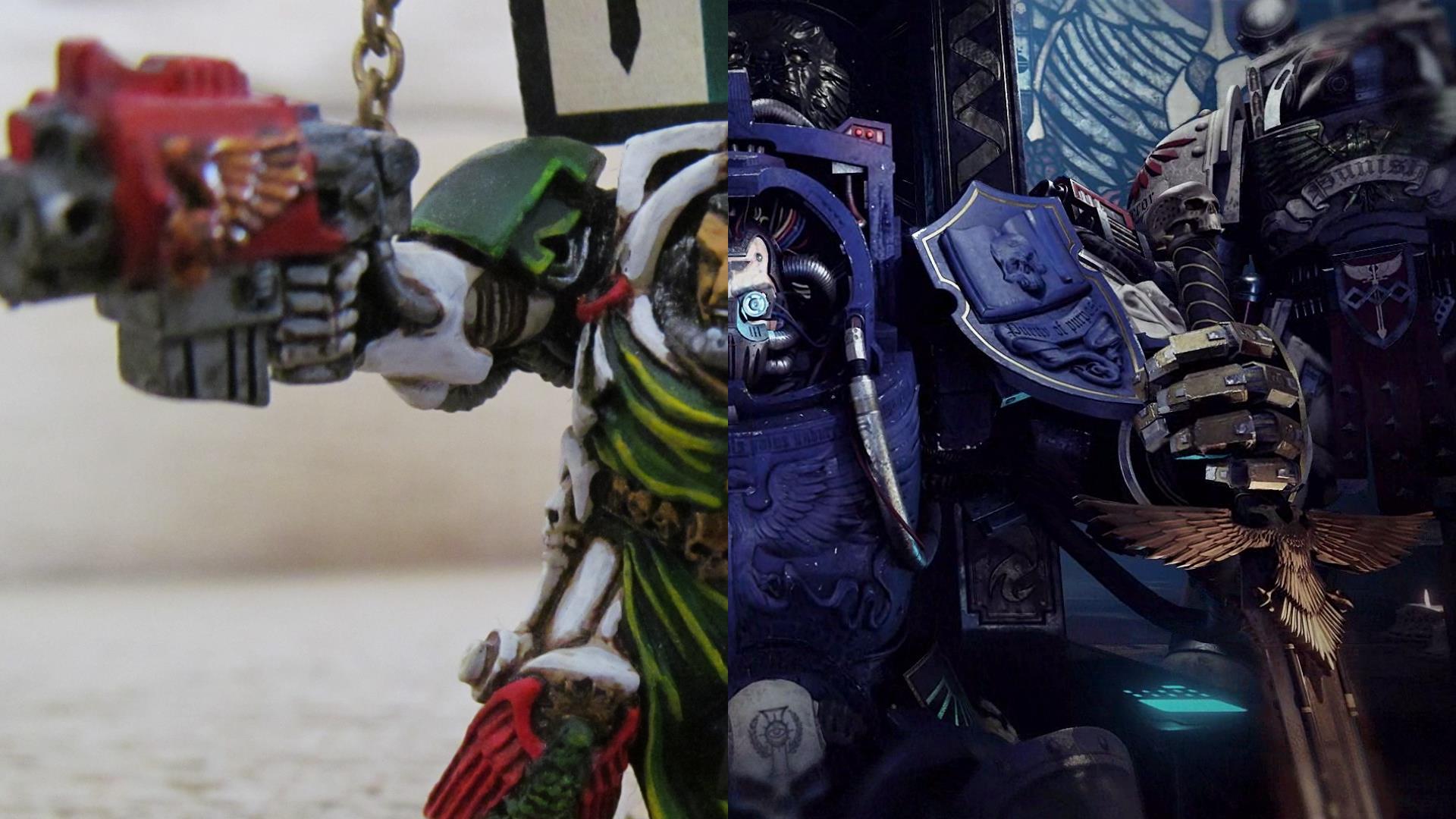
**From Tabletop to Digital: The Evolution of Warhammer 40k Games**
Warhammer 40k is a popular tabletop wargame that has been enjoyed by hobbyists for decades. But with the rise of technology and the increasing popularity of digital gaming, Warhammer 40k has also made its way into the digital realm. This evolution has opened up new possibilities for fans of the game, allowing them to experience the rich universe of Warhammer 40k in different ways. In this article, we will explore the journey of Warhammer 40k from the tabletop to the digital world, and how it has shaped the gaming landscape.
**The Rise of Warhammer 40k: A Tabletop Phenomenon**
Warhammer 40k was first introduced in 1987 by Games Workshop, a British company known for its tabletop games. Set in a dystopian future, the game revolves around epic battles between various factions in the Warhammer 40k universe. Players take on the roles of commanders, strategizing their moves and deploying armies to secure victory.
The tabletop version of Warhammer 40k quickly gained a dedicated following. Hobbyists would spend hours assembling and painting intricate miniatures, creating personalized armies to bring to the battlefield. The game’s immersive lore and deep strategic gameplay made it a favorite among gamers looking for a challenging and rewarding experience.
**The Digital Transformation: Warhammer 40k Goes Virtual**
As technology advanced and the gaming industry embraced digital platforms, Warhammer 40k also began its digital transformation. The first step in this evolution was the release of video games based on the Warhammer 40k universe. These games allowed players to experience the world of Warhammer 40k in a virtual setting, with detailed graphics and immersive gameplay.
One of the earliest digital adaptations of Warhammer 40k was the real-time strategy game “Warhammer 40,000: Dawn of War” released in 2004. This game brought the intense battles of Warhammer 40k to life on the computer screen, allowing players to command armies and engage in epic skirmishes. It was a massive success and paved the way for future digital adaptations of the game.
**Expanding the Universe: Warhammer 40k in the Digital Age**
With the success of video games, Warhammer 40k continued to expand its presence in the digital realm. In addition to real-time strategy games, there are now various genres and platforms that offer Warhammer 40k experiences. From turn-based strategy games to first-person shooters, there is a Warhammer 40k game for every type of gamer.
One notable example is “Warhammer 40,000: Space Marine,” a third-person shooter that puts players in the boots of a superhuman Space Marine. The game combines intense action with the gritty atmosphere of the Warhammer 40k universe, providing an immersive experience for fans.
**Benefits of the Digital Evolution: Accessibility and Community**
The digital evolution of Warhammer 40k has brought several benefits to fans of the game. One of the main advantages is increased accessibility. While tabletop Warhammer 40k requires physical space and a dedicated group of players, digital adaptations allow gamers to enjoy the game anytime, anywhere. This has opened up the world of Warhammer 40k to a wider audience, making it more inclusive and diverse.
Another benefit is the ability to connect with a global community of Warhammer 40k enthusiasts. With online multiplayer features, players can engage in battles with opponents from around the world, fostering a sense of camaraderie and competition. This online community also provides a platform for sharing strategies, tips, and experiences, further enriching the Warhammer 40k gaming experience.
**The Future of Warhammer 40k: Balancing Tradition and Innovation**
As Warhammer 40k continues to evolve in the digital age, it is essential to strike a balance between tradition and innovation. While digital adaptations bring new possibilities and reach a broader audience, it is crucial to preserve the core elements that make Warhammer 40k unique.
Games Workshop, the company behind Warhammer 40k, has embraced this challenge by releasing new iterations of the tabletop game alongside digital adaptations. This allows fans to choose the format that suits them best and ensures that the spirit of Warhammer 40k remains intact.
In conclusion, the journey of Warhammer 40k from the tabletop to the digital world has expanded the game’s reach and brought new experiences to fans. The digital evolution has made Warhammer 40k more accessible and connected, allowing a wider audience to immerse themselves in the rich universe of the game. As the game continues to evolve, it is essential to find the right balance between tradition and innovation to ensure that Warhammer 40k remains a beloved and enduring franchise.
Key Takeaways: From Tabletop to Digital – The Evolution of Warhammer 40k Games
- Warhammer 40k Games have come a long way, transitioning from physical tabletop games to digital adaptations.
- The digital versions of Warhammer 40k Games offer convenience and accessibility, allowing players to enjoy the game anytime, anywhere.
- With the digitization of Warhammer 40k Games, players now have the option to play against AI opponents or challenge other players online.
- The graphics and visuals in digital Warhammer 40k Games have improved significantly, creating a more immersive and visually appealing experience.
- The digital adaptations of Warhammer 40k Games have expanded the player base, attracting new players who may not have been familiar with the tabletop version.
Frequently Asked Questions
Here are some frequently asked questions about the evolution of Warhammer 40k games:
1. How has Warhammer 40k transitioned from tabletop to digital platforms?
Over the years, Warhammer 40k has made a successful transition from the traditional tabletop format to digital platforms. The advancement in technology has allowed game developers to recreate the immersive experience of the tabletop game in a digital format. This evolution has brought convenience and accessibility to players, allowing them to enjoy the game anytime, anywhere.
With the digital adaptation, Warhammer 40k games now offer stunning graphics, dynamic animations, and immersive sound effects. Players can engage in epic battles with intricate strategies, all within the virtual world. The digital platforms also provide opportunities for online multiplayer, allowing players to compete or collaborate with others from around the world.
2. What are the advantages of playing Warhammer 40k games digitally?
Playing Warhammer 40k games digitally offers several advantages. Firstly, it eliminates the need for physical components, such as miniatures and rulebooks, making it more cost-effective and space-saving. Players can simply download the game on their devices and start playing.
Additionally, digital platforms often come with built-in tutorials and rule explanations, making it easier for newcomers to learn the game. The computerized opponents also provide challenging AI, ensuring that players have a fulfilling gaming experience even when playing solo. Moreover, digital versions offer regular updates and expansions, introducing new content and keeping the game fresh and exciting.
3. Are there any differences between the tabletop and digital versions of Warhammer 40k games?
While the core gameplay mechanics remain similar, there are some notable differences between the tabletop and digital versions of Warhammer 40k games. One significant difference is the absence of physical components in the digital versions. Players no longer need to assemble, paint, and transport miniatures, as all the action takes place on-screen.
Furthermore, the digital versions often provide automated calculations and rule enforcement, streamlining gameplay and reducing the chances of human error. However, some players argue that the tactile experience of the tabletop game, with its physical models and dice rolling, cannot be fully replicated in the digital format.
4. How has the evolution of Warhammer 40k games impacted the gaming community?
The evolution of Warhammer 40k games has had a significant impact on the gaming community. The digital adaptation has attracted a new generation of players who may not have been exposed to the tabletop version. The accessibility and convenience of digital platforms have made the game more appealing to a wider audience.
Moreover, the digital versions have fostered a global community of Warhammer 40k players. Online multiplayer features allow players to connect and interact with fellow enthusiasts from different parts of the world. This sense of community has led to the sharing of strategies, the organization of tournaments, and the overall growth of the Warhammer 40k gaming scene.
5. What does the future hold for Warhammer 40k games?
The future of Warhammer 40k games seems promising. With advancements in technology, we can expect even more immersive and visually stunning digital adaptations. Virtual reality (VR) and augmented reality (AR) technologies may bring players closer to the action, allowing them to experience the game in a whole new dimension.
Furthermore, the integration of artificial intelligence (AI) could enhance the single-player experience by providing more intelligent and challenging opponents. The continued support from game developers through regular updates and expansions will ensure that Warhammer 40k games remain engaging and captivating for both new and existing players.
Evolution Of Warhammer Games 1991-2020
Final Summary: The Journey of Warhammer 40k Games
As we delve into the world of Warhammer 40k games, we witness a captivating evolution from the tabletop realm to the digital landscape. This journey has not only revolutionized the gaming experience but also brought the rich lore and immersive universe of Warhammer 40k to a wider audience. From the early days of assembling miniatures and rolling dice to commanding armies in stunning digital battles, the evolution of Warhammer 40k games has been a thrilling adventure.
Throughout the years, Warhammer 40k games have embraced technological advancements, allowing players to dive deeper into the intricate narratives and engage in epic conflicts. The transition from tabletop to digital platforms has not only enhanced accessibility but also opened up new avenues for strategic gameplay and immersive storytelling. The ability to customize armies, forge alliances, and wage war on a grand scale has captivated fans and newcomers alike.
With each iteration and adaptation, Warhammer 40k games have continued to push boundaries and provide unforgettable experiences. The fusion of stunning visuals, strategic depth, and the rich lore of the Warhammer 40k universe has solidified its place as a beloved franchise in the gaming world. Whether you prefer the tactile feel of the tabletop or the dynamic nature of digital gameplay, Warhammer 40k games offer endless possibilities for players to explore.
In conclusion, the evolution of Warhammer 40k games from tabletop to digital has been a testament to the enduring popularity and innovation of this iconic franchise. It has brought the immersive universe of Warhammer 40k to life in new and exciting ways, captivating players across the globe. Whether you’re a seasoned veteran or a newcomer to the world of Warhammer 40k, these games offer a thrilling adventure that will keep you engaged for hours on end. So, gather your forces, prepare for battle, and embark on an epic journey through the grim darkness of the 41st millennium. The universe of Warhammer 40k awaits you!

